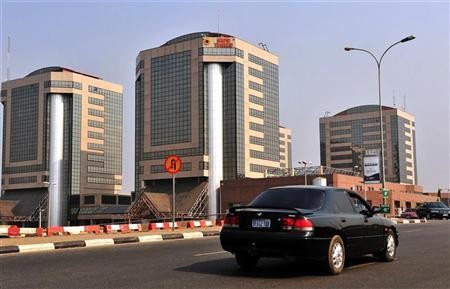Nigeria: Concern grows as President Buhari bans 113 vessels from lifting crude oil in anti-corruption move

Concern is growing in Nigeria after President Muhammadu Buhari reportedly banned 113 vessels from lifting oil crude in an anti-corruption move.
Earlier in July, the state-owned Nigerian National Petroleum Corporation (NNPC) issued a memo stating that, as per a presidential directive, it banned the vessels from lifting crude oil from 27 terminals "until further notice", without giving reasons behind the decision.
The memo was signed by NNPC's group general manager, crude oil marketing division, GO Komolafe.
According to a report by Sahara Reporters, a source close to the government said the vessels had been implicated in the "illicit lifting of Nigeria's crude".
Nigeria
Capital: Abuja
Population: 174,507,53 (2013 census)
Largest cities: Lagos, Kano, Abuja
Major ethnic groups: 21% Yoruba, 21% Hausa,
18% Igbo
Languages: English, Hausa, Igbo, Yoruba
Religion: 50% Muslim, 40% Christian, 10% other
Currency: Naira (N) 1N = £0.0033; US$0.0050
Reports also alleged that the ban triggered protests from international oil tankers who fear the blanket ban could affect their business and said the memo lacks transparency.
IBTimes UK contacted the Nigerian government, but has not received a response at the time of puiblishing.
While the ban drew criticism on one side, it was also welcomed on the other with people seeing the move as a step towards tackling the country's widespread corruption which has often affected oil and gas industries in Nigeria.
Olayemi Akande, a prominent Nigerian blogger based in Lagos, told IBTimes UK: "The actual reason for the ban was not stated but given that this administration is out to recover stolen money, this may be a strategy.
"NNPC was said to be involved in a huge scam on different levels, it may be a way to audit their past oil lifting operations. I am sure the government is doing this for the general good of the country."
In 2013, the head of the Central Bank of Nigeria (CBN), Sanusi Lamido Sanusi, was suspended after he claimed that $20bn (£12.8bn, €18bn) of oil revenue "went missing" from NNPC.
In a letter to former president Goodluck Jonathan, Sanusi said: "I am constrained to formally write your excellency, documenting serious concerns of the CBN on the continued failure of the NNPC to repatriate significant proportions of the proceeds of crude oil shipments it made in gross violation of the law."
The allegations triggered an investigation into NNPC books. According to the audit, released in April, NNPC overpaid the state by almost $750m, but had to still pay an additional $1.5bn.
During his electoral campaign, Buhari vowed he would eradicate corruption within the government and, after being elected, he announced he would recover millions of dollars of funds which he alleged were stolen by previous administrations.
© Copyright IBTimes 2025. All rights reserved.






















